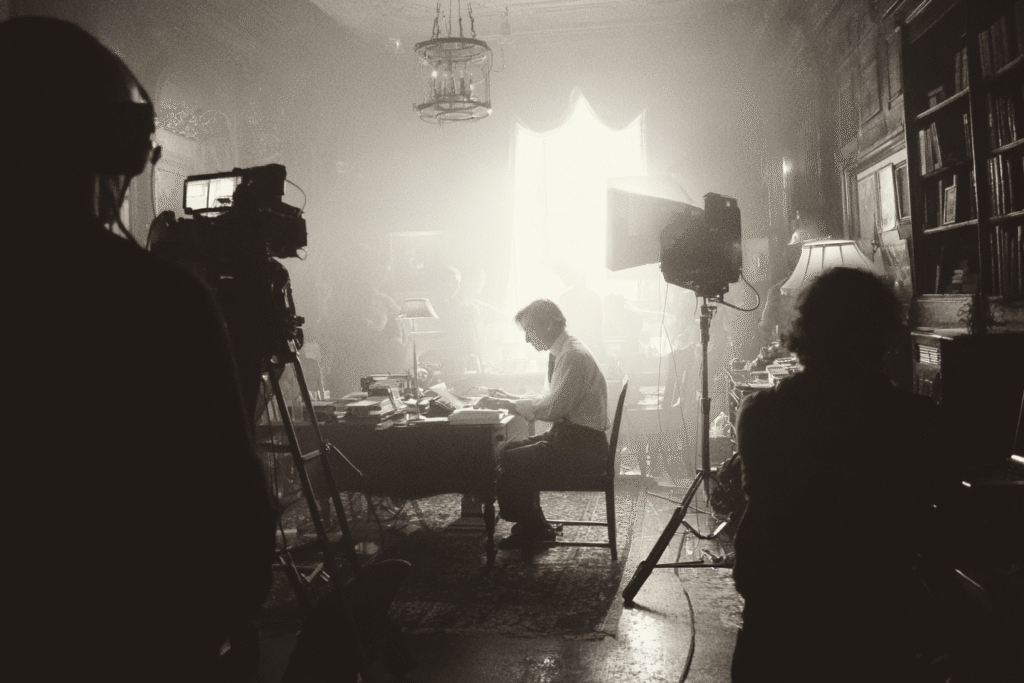
From the SRP Editor site:
You’ve heard it a million times: “Lights, camera, action!” The director calls it, the crew scrambles, and something actually happens on screen.
Now imagine if they shouted it and…nothing. No actor moves, no lights turn on, no cameras roll. Just a whole lot of standing around.
That’s exactly what it feels like when you write a scene that doesn’t do a damn thing for your story.
Here’s the truth: every single scene in your book has to matter. If it’s not pulling its weight, it’s just chewing up wordcount and reader patience. If your scene doesn’t shift a value, reveal character, or push the plot ahead, then you’ve just written a pretty piece of wallpaper. And readers don’t come to novels for wallpaper.
So what makes a scene “earn its keep”? One of three things (bonus points if it does more than one):
1. Shifting Values
A scene has to change something. A “value” in storytelling terms means the state of affairs for your characters or world. Safety → danger. Love → betrayal. Broke → filthy rich. Even “hungry → finally fed.”
If nothing changes from the beginning to the end of a scene, then congratulations, you’ve just written a Hallmark card, not a novel scene. Readers don’t need a scene where everybody stands around agreeing with each other about the weather.
2. Revealing Character
Sometimes the story doesn’t have to sprint forward — but the reader needs to learn something. Not “Oh, Bob likes coffee,” but something that peels back a layer: Bob would rather miss his promotion than betray his friend. Or Bob would totally sell his grandma’s dentures to get what he wants.
Good scenes force your characters to show their true colors. If all they’re doing is exchanging polite chit-chat? Delete.
3. Driving the Plot
This one’s obvious: stuff needs to happen. Guns go off. Secrets spill. The hero makes a move that changes the trajectory of the story.
If your scene doesn’t drive the story toward its big fat climax, then what’s the point? Your readers will notice when you stall — and their eyeballs will slide right off the page.
The Three-Question Litmus Test
When you finish a scene, ask yourself:
- Did a value shift?
- Did I reveal character in a meaningful way?
- Did I drive the story forward?
If you can’t answer “yes” to at least one of those, take out your literary chainsaw and cut that sucker. Or rewrite it so it actually does something.
The Bottom Line
Think of your novel like a movie set. Every time you step into a new scene, it’s your turn to yell: “Lights, Character, Action!”
Because if nothing changes, nothing’s revealed, and nothing drives forward, then you’ve just wasted everybody’s time. And time is the one thing readers aren’t generous about.
Mark



